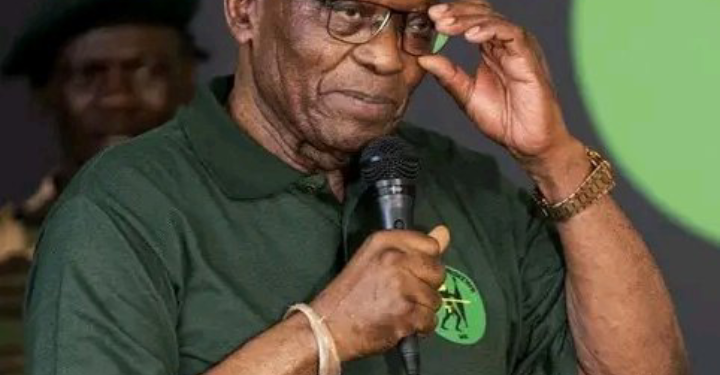Former President Jacob Zuma, a prominent figure in South African politics, addressed a rally of the MK Party in Umsinga, located in the KwaZulu-Natal Midlands, advocating for a shift towards traditional leadership in the country’s governance structure. Zuma’s remarks stirred significant discussion and debate among political analysts and citizens alike.
During his speech, Zuma highlighted the need for South Africa to embrace traditional leadership, drawing parallels with the United Kingdom, where King Charles currently reigns. He emphasized the stability and continuity offered by traditional monarchies, suggesting that similar principles could benefit South Africa’s political landscape.
Zuma’s invocation of traditional leadership struck a chord with some supporters, who view it as a return to cultural roots and values. However, his remarks have also sparked criticism and skepticism, particularly regarding the compatibility of traditional governance structures with modern democratic principles.
Political analysts have pointed out the complexities and challenges associated with integrating traditional leadership into a democratic framework. While traditional leaders hold significant influence in certain communities, ensuring their inclusion in national governance while upholding democratic principles such as accountability and representation poses a formidable task.
Furthermore, Zuma’s comparison to the British monarchy has been met with skepticism, given the vast differences in historical context and political systems between the two countries. South Africa’s democratic transition in the post-apartheid era aimed to break away from colonial legacies and establish a participatory and inclusive political order, which may diverge from the model represented by the British monarchy.
Critics argue that Zuma’s advocacy for traditional leadership could undermine the progress made towards a more inclusive and representative democracy in South Africa. They caution against romanticizing traditional governance structures without adequately addressing issues of accountability, gender equality, and human rights.
The debate sparked by Zuma’s remarks underscores the ongoing quest for a political system that balances tradition with modernity, community with individual rights, and stability with accountability. As South Africa navigates its democratic journey, the discourse surrounding the role of traditional leadership in governance will continue to shape the nation’s political landscape.
The rally, captured by Newzroom Afrika, provided a platform for Zuma’s message to reach a wider audience, sparking reflection and dialogue on the future trajectory of South Africa’s governance system.






















